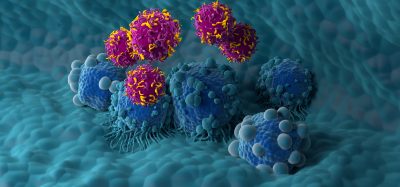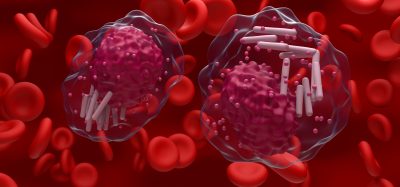Pain therapeutics: New interview released with the Centre for Human Drug Research (CHDR)
Posted: 14 April 2016 | SMi Group | No comments yet
SMi’s 16th annual Pain Therapeutics conference returns to London this May and is thrilled to have Dr Geert Jan Groeneveld, Research Director from the Centre for Human Drug Research, as one of the featured speakers for 2016…
SMi’s 16th annual Pain Therapeutics conference returns to London this May and is thrilled to have Dr Geert Jan Groeneveld, Research Director from the Centre for Human Drug Research, as one of the featured speakers for 2016.
Geert Jan Groeneveld is currently responsible for research in the areas of neurology and pain at CHDR in Leiden. He is also a staff-member at the department of Neurology of VU University Medical Center, Amsterdam, where he performs clinical work as a neurologist. His primary scientific interest is in early phase drug development for the treatment of neurodegenerative diseases and neuropathic pain. He has published around 25 scientific articles and is actively involved in the training of PhD students at CHDR.
Hear more from Dr Groeneveld at Pain Therapeutics 2016 in a presentation entitled: Reproducibility of a battery of human evoked pain tests to determine the pharmacological profile of novel analgesic drugs.
In the run-up to his address, SMi Group caught up with Geert to discuss current industry challenges and his upcoming talk. When asked about current obstacles in treatment and drug development, he said:
“As a clinician, I see the severe effects that chronic pain can have on the lives of patients. Treatment, even if relatively effective, will rarely take away more than some of the pain, and often brings along totally new problems for patients, in the form of side effects of drugs. As a clinical pharmacologist involved in drug development, I see compounds with great potential failing because of limited efficacy or efficacy in a limited subset of patients, because of side effects, but also because development is stopped based on low expectations with respect to the market size of the drug once registered. However, even when a drug has modest effects on pain, is effective in some patients only or has potentially serious side effects, it can be of value for some of the patients that are currently still suffering despite available treatments. Bringing these two together is in my opinion the biggest challenge. “
On funding research, Geert commented:
“Society should fund research aimed at finding out which factors are involved in chronification of pain and in the development of neuropathic pain, so that chronic (neuropathic) pain is better understood and maybe prevented in the future. Pharma should focus on finding new druggable pathways involved in pain and developing compounds that target these pathways.”
The full interview is available to read at www.smi-online.co.uk/goto/2016pain-therapeutics.asp#tab_downloads
16th Annual Pain Therapeutics Conference
23rd & 24th May 2016
Holiday Inn Kensington Forum, London UK
http://www.pain-therapeutics.co.uk/dtr
Related topics
Therapeutics







